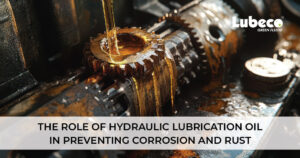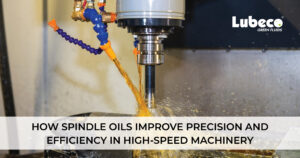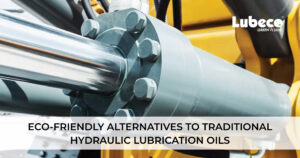In the realm of non-destructive testing (NDT), Magnetic Particle Inspection (MPI) is a widely utilized method for detecting surface and subsurface defects in ferromagnetic materials. Central to the effectiveness of MPI is the use of specialized MPI oils, which facilitate the detection of flaws through the application of magnetic particles.
In this comprehensive guide, we’ll delve into the compatibility of MPI oils with various materials and surface conditions, elucidating their importance and applications in the field of non-destructive testing.
Understanding Magnetic Particle Inspection (MPI) Oils:
Magnetic Particle Inspection (MPI) is a non-destructive testing technique employed to detect surface and subsurface defects in ferromagnetic materials. This method relies on the application of magnetic fields and magnetic particles to reveal discontinuities such as cracks, voids, and inclusions. MPI oils play a crucial role in this process, serving as carriers for magnetic particles and enhancing the visibility of defects under UV light or fluorescent penetrant inspection.
Compatibility with Different Materials:
Steel:
MPI oils are primarily designed for use with ferromagnetic materials such as steel, which exhibit magnetic properties. These oils are formulated to adhere effectively to steel surfaces, allowing magnetic particles to accumulate and highlight defects during the inspection process.
Cast Iron:
MPI oils are also compatible with cast iron, another ferromagnetic material commonly used in various industrial applications. The properties of MPI oils enable them to penetrate the surface of cast iron components, facilitating the detection of flaws and discontinuities.
Nickel and Cobalt Alloys:
While less common, MPI oils can also be compatible with certain nickel and cobalt alloys that possess ferromagnetic properties. It’s essential to verify the compatibility of MPI oils with specific alloy compositions to ensure accurate and reliable inspection results.
Surface Treatments:
MPI oils may also be compatible with surface treatments applied to ferromagnetic materials, such as coatings, platings, or finishes. However, it’s crucial to conduct compatibility testing to ensure that the MPI oil does not interfere with the effectiveness of the inspection process.
Compatibility with Different Surface Conditions:
Clean Surfaces:
MPI oils are most effective when applied to clean, dry surfaces free of contaminants and residues. Proper surface preparation, including cleaning and degreasing, is essential to ensure the accuracy and reliability of MPI inspections.
Rough Surfaces:
In cases where surfaces exhibit roughness or irregularities, MPI oils may still provide effective coverage and penetration, allowing magnetic particles to adhere to the surface and highlight defects. However, additional care may be required to ensure uniform coverage and particle retention.
Non-Magnetic Coatings:
MPI oils can penetrate certain non-magnetic coatings applied to ferromagnetic materials, allowing magnetic particles to accumulate at the surface and reveal underlying defects. However, the compatibility of MPI oils with specific coatings should be verified to prevent interference with the inspection process.
Corroded Surfaces:
MPI oils may encounter challenges when applied to corroded surfaces, as corrosion products and oxides can hinder the effectiveness of magnetic particle inspection. Surface cleaning and preparation are critical to removing corrosion products and ensuring optimal adhesion of MPI oils and magnetic particles.
Benefits of MPI Oils:
Enhanced Visibility:
MPI oils improve the visibility of defects by providing contrast between the magnetic particles and the surface of the material, enhancing the detectability of flaws during inspection.
Improved Sensitivity:
MPI oils increase the sensitivity of magnetic particle inspection by facilitating the accumulation of magnetic particles at defect sites, allowing for the detection of even minute discontinuities.
Uniform Coverage:
MPI oils ensure uniform coverage of the inspection surface, allowing magnetic particles to adhere evenly and providing consistent inspection results across the entire area.
Reduced Background Noise:
By minimizing background noise and enhancing defect visibility, MPI oils contribute to the accuracy and reliability of inspection outcomes, reducing the risk of false positives or missed defects.
Applications of MPI Oils:
Weld Inspection:
MPI oils are commonly used for the inspection of welded joints and structures to detect surface and subsurface defects such as cracks, porosity, and lack of fusion.
Aerospace Industry:
In the aerospace sector, MPI oils are employed for the inspection of critical components such as aircraft engines, landing gear, and structural elements to ensure their integrity and safety.
Automotive Manufacturing:
MPI oils find application in automotive manufacturing facilities for inspecting components such as engine blocks, crankshafts, and suspension components to verify their quality and reliability.
Heavy Machinery:
MPI oils are utilized in the inspection of heavy machinery and equipment in industries such as mining, construction, and oil and gas to identify defects that could compromise safety and performance.
Conclusion:
Magnetic Particle Inspection (MPI) oils play a crucial role in the non-destructive testing of ferromagnetic materials, enhancing the detectability of surface and subsurface defects through the application of magnetic particles.
Their compatibility with different materials and surface conditions ensures accurate and reliable inspection results across various industrial applications. By understanding the importance and applications of MPI oils, industries can optimize their non-destructive testing practices and ensure the integrity and safety of critical components and structures.








